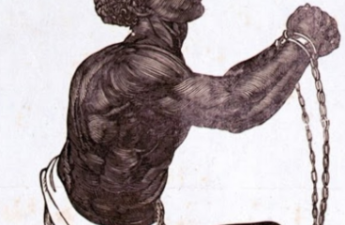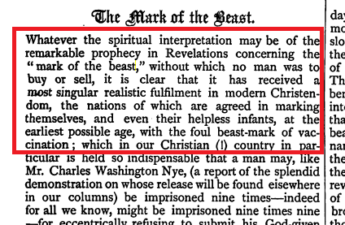
by Steve Halbrook
The religion of vaccination rests on the premise that vaccine-induced antibodies prevent disease. But check this out.
From an article by Dr. Tetyana Obukhanych:
When was it ever proven that antibodies offer protection? In fact, the opposite has been observed. Don’t we remember another prominent scientist (and a Nobel Prize winner in 1960) Sir Frank Macfarlane Burnet telling us the following regarding the role of antibodies (or rather lack thereof) for immunity in children who lacked antibody production due to a genetic condition called agammaglobulinemia:
“To everyone’s surprise [children with agammaglobulinemia] showed a normal measles course with a typical rash which faded at the normal time and was followed by just as substantial immunity against reinfection as would be shown by any other convalescent. Antibody production is therefore not necessary either for recovery from or for the development of immunity to measles.” (Burnet and White. Natural History of Infectious Disease. Cambridge University Press, 1940)
In short, children with a condition that kept them from producing antibodies recovered as well as anyone else with the Measles — and they developed immunity without antibodies. Antibodies were irrelevant.
As Dr. Obukhanych’s article also shows, those vaccinated for the Measles can still get the Measles.
Whoops! This is devastating to the vaccine paradigm. On the quote about children recovering from Measles without the aid of antibodies, vaccine expert Shawn Siegel writes:
There’s no reason to assume that the same phenomenon isn’t true for all other infectious illnesses. This, of course, tends to shoot the legs out from under the vaccination paradigm, which depends heavily on vaccine-elicited antibody production as proof of efficacy, of lauded protection.
It also makes me question the criticality of the supposed short supply and stymied distribution of monoclonal antibodies for Covid, especially when since day one zinc, C, D3, quercetin, HCQ, nebulized H2O2 and other readily available, effective treatments have been used with routine success.
The hundreds of thousands of Americans who died because they were denied early treatment, at the behest of our supposed health authorities, is a whole other issue.
Shawn Siegel, Facebook, January 5, 2022. Retrieved January 29, 2022, from https://www.facebook.com/shawn.siegel.7/posts/5262666307094127
See now the following from this article by Dr. Sherri Tenpenny (“The Belief in Vaccines”):
Vaccines are said to confer protection by causing the development of antibodies. However, there are many references in CDC documents (the Highest Authority in the land regarding vaccines) which reveal that antibodies don’t necessarily protect us from infection. Here are a few examples from medical journals and CDC documents:
Pertussis: “The findings of efficacy studies have not demonstrated a direct correlation between antibody response and protection against pertussis disease.” MMWR March 28, 1997/Vol.46/No. RR-7, p.4
H. Flu (HiB): “The antibody contribution to clinical protection is unknown.”
—HibTITER package insert
“The precise level of antibody required for protection against HiB invasive disease is not clearly established.”
http://www.cdc.gov/nip/publications/pink/hib.pdf.Smallpox: “Neutralizing antibodies are reported to reflect levels of protection, although this has not been validated in the field.” JAMA June 9,1999, Vol. 281, No. 22, p.3132
More could be said about supposed antibody protection from vaccination. Much more info can be found here.
Of course, even if vaccination offered protection from diseases, it still destroys your health and can kill you. Avoiding a sniffle or a week-long illness is hardly a sane trade-off for permanent health problems or the ending of your life. Calling vaccination effective is highly disputable when ill-health defeats the purpose of the procedure.
But we can say this: vaccination is highly effective at preventing disease when it kills you. When you’re dead, you are immune from disease. Thus vaccination is effective in an insidious way.
If you find this site helpful, please consider supporting our work.


